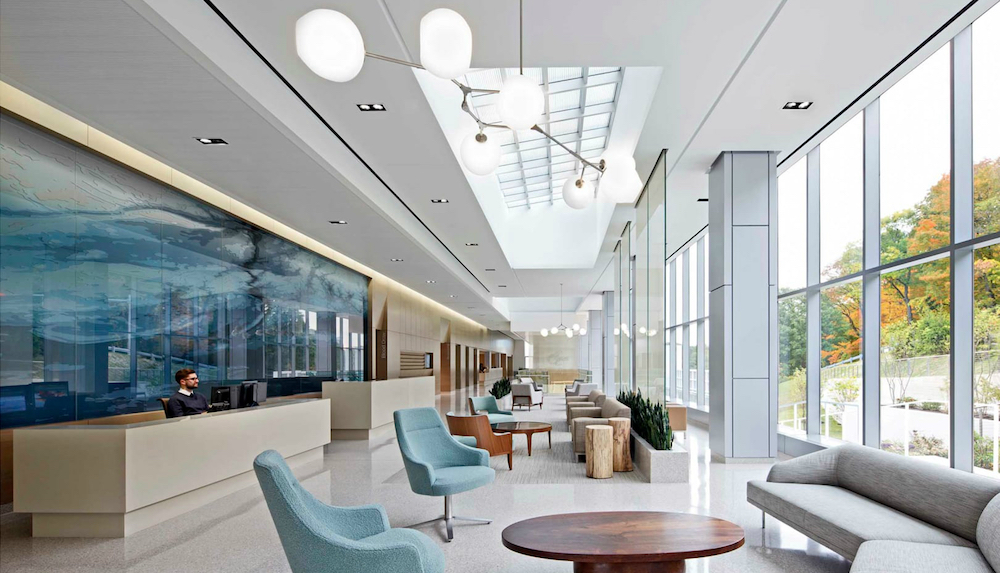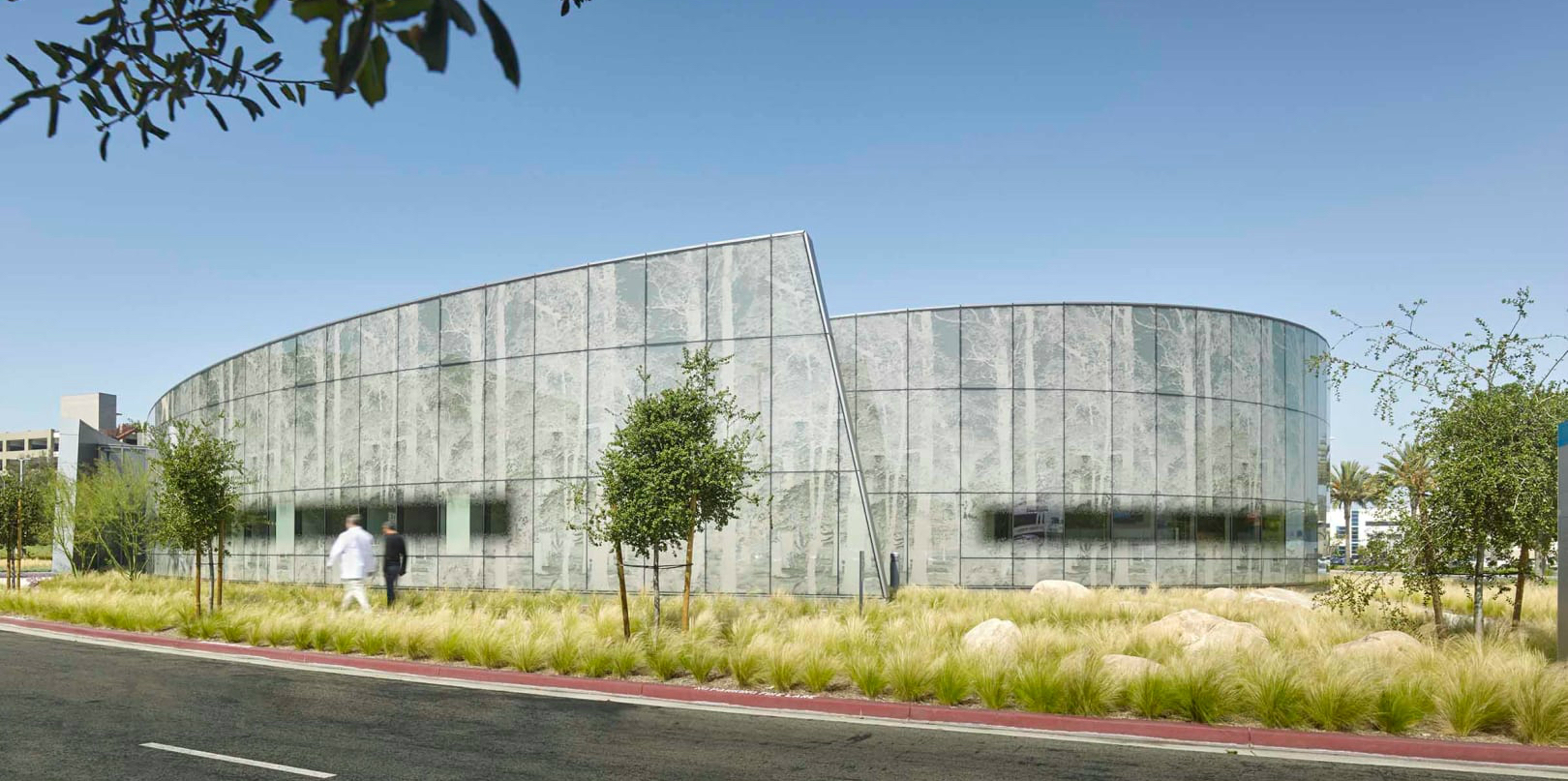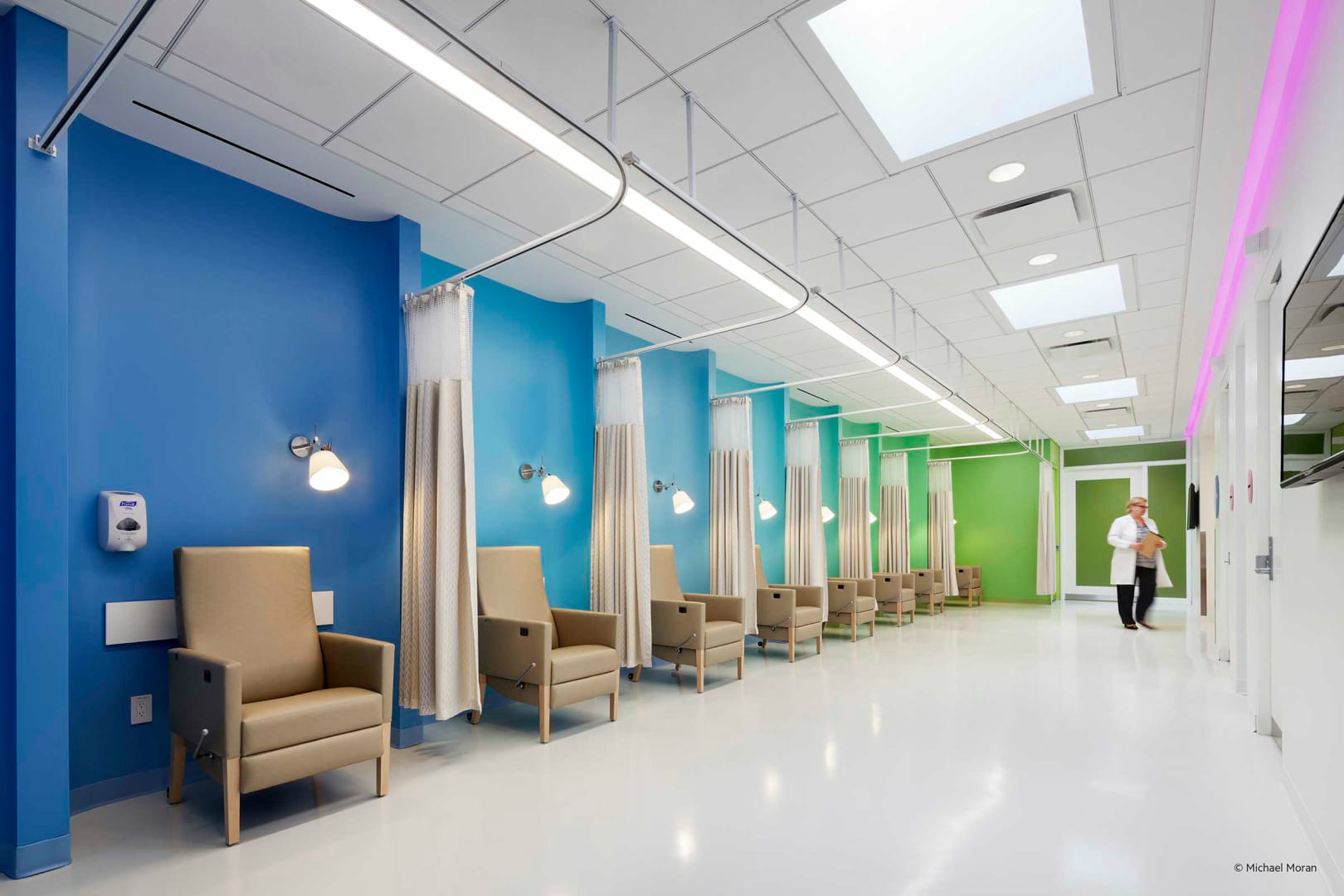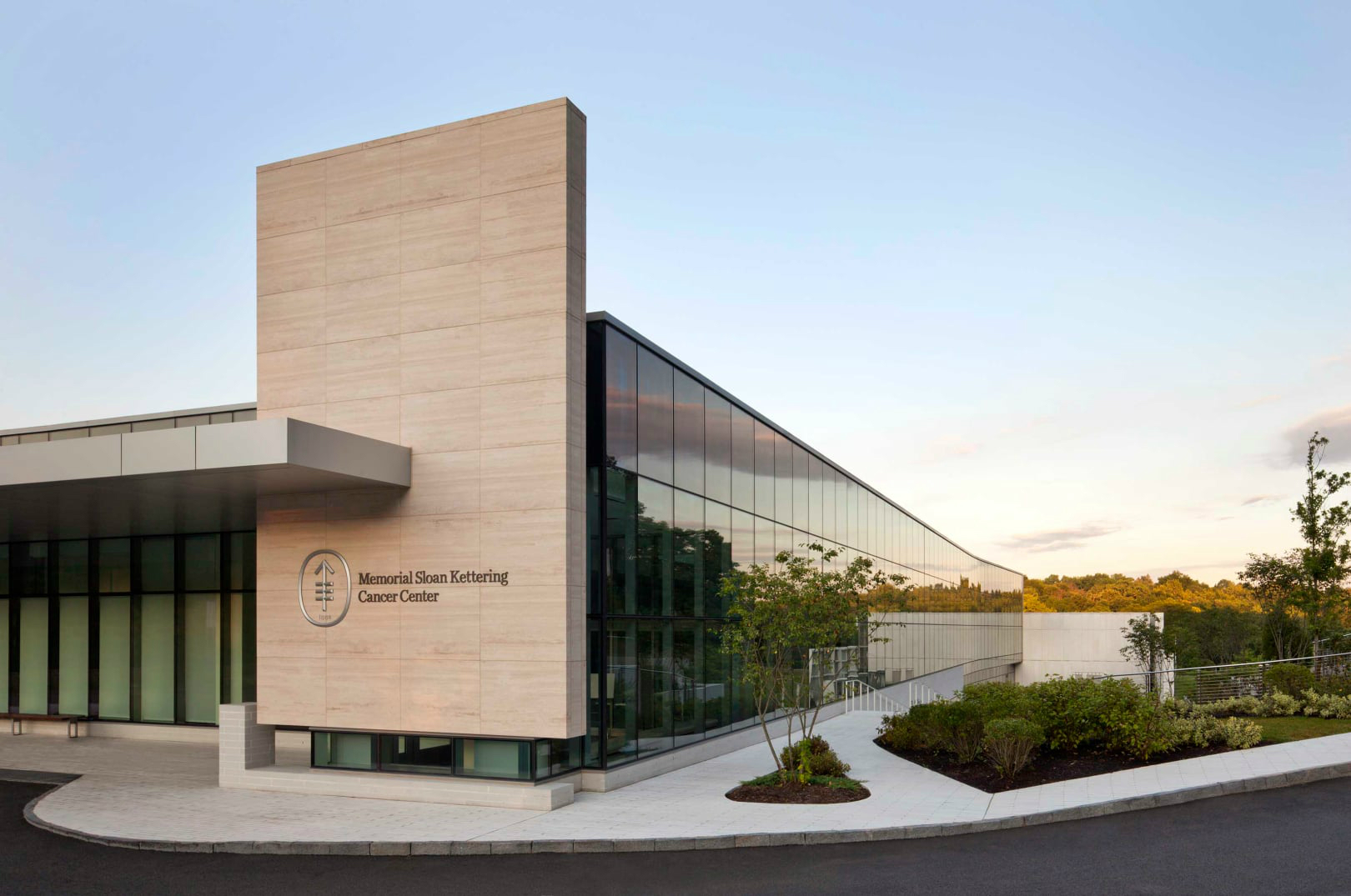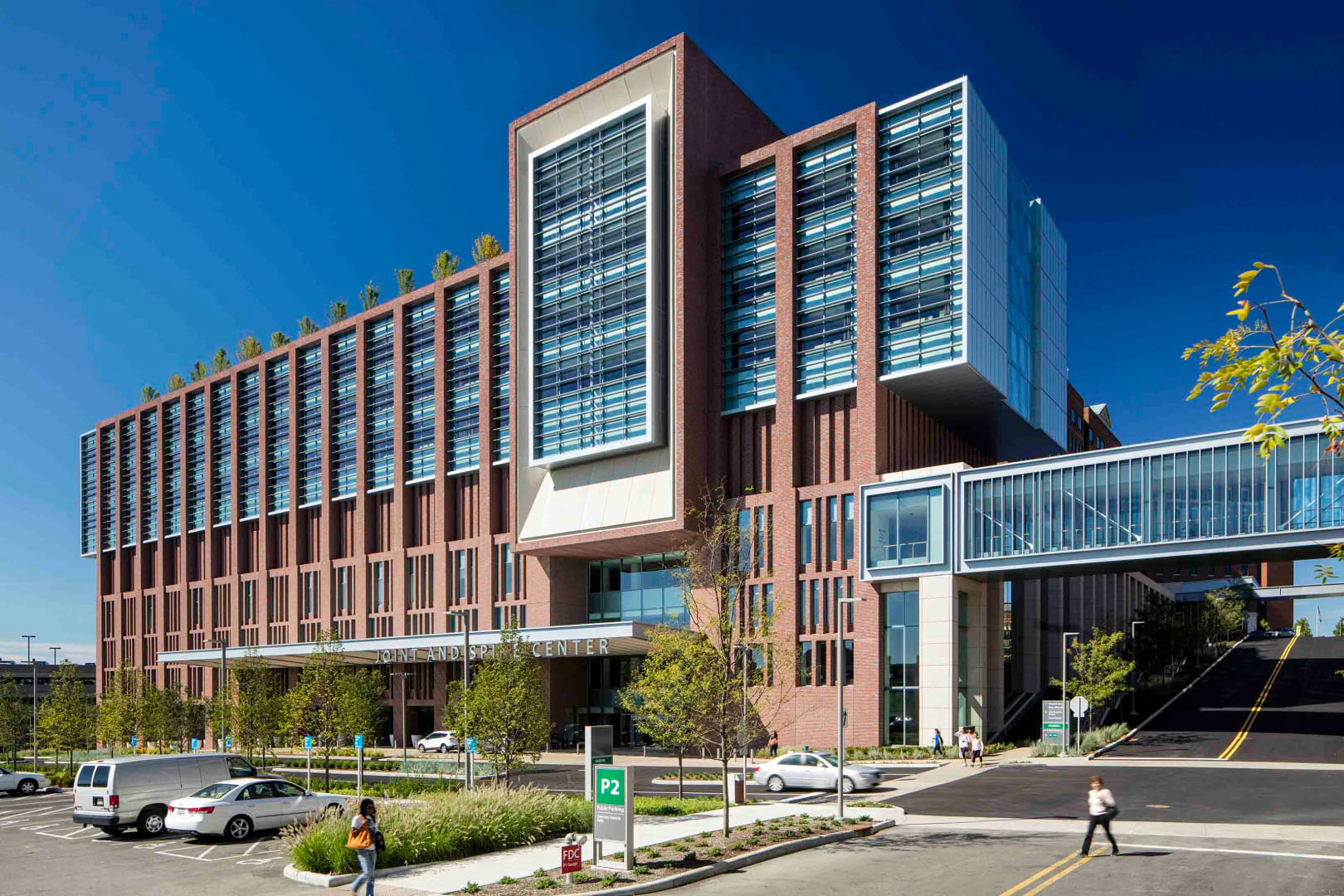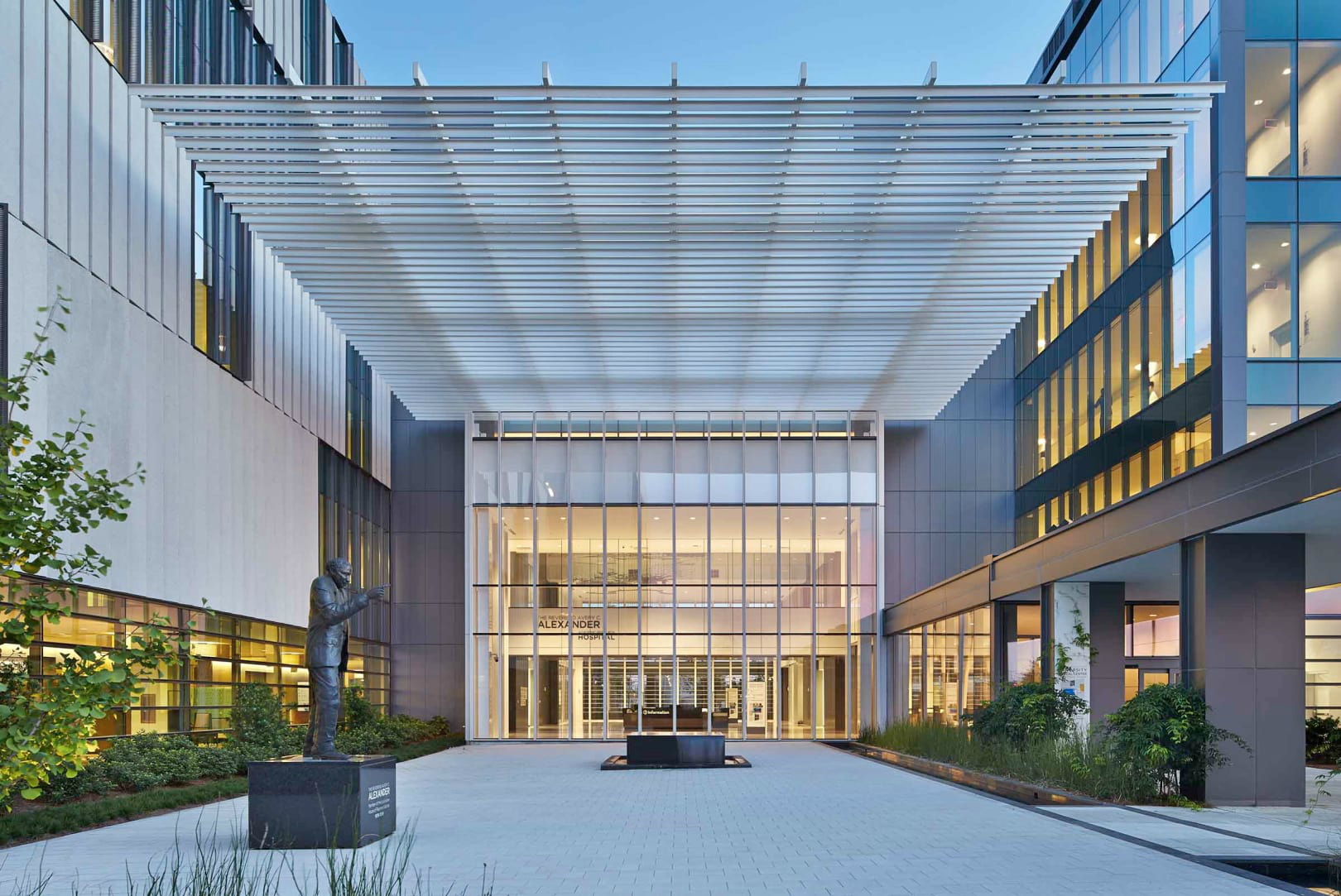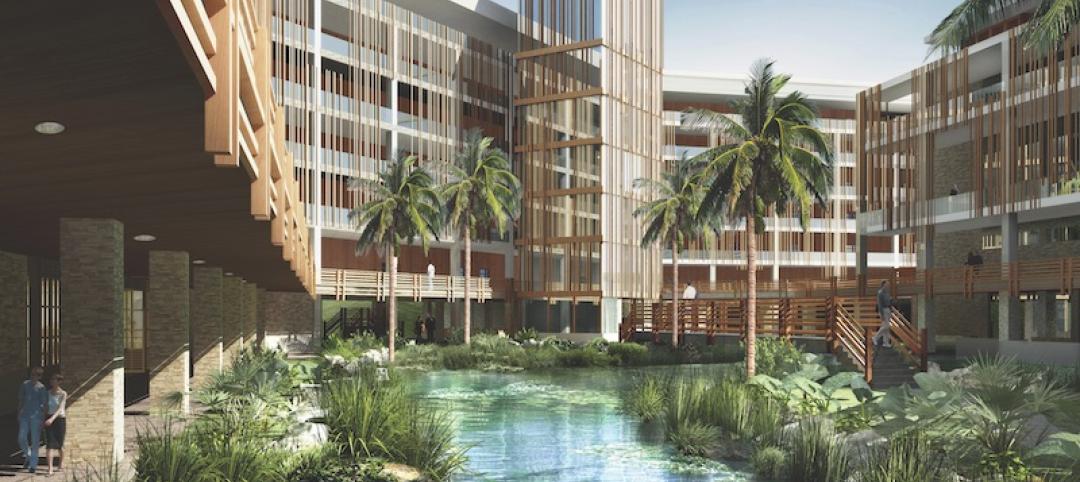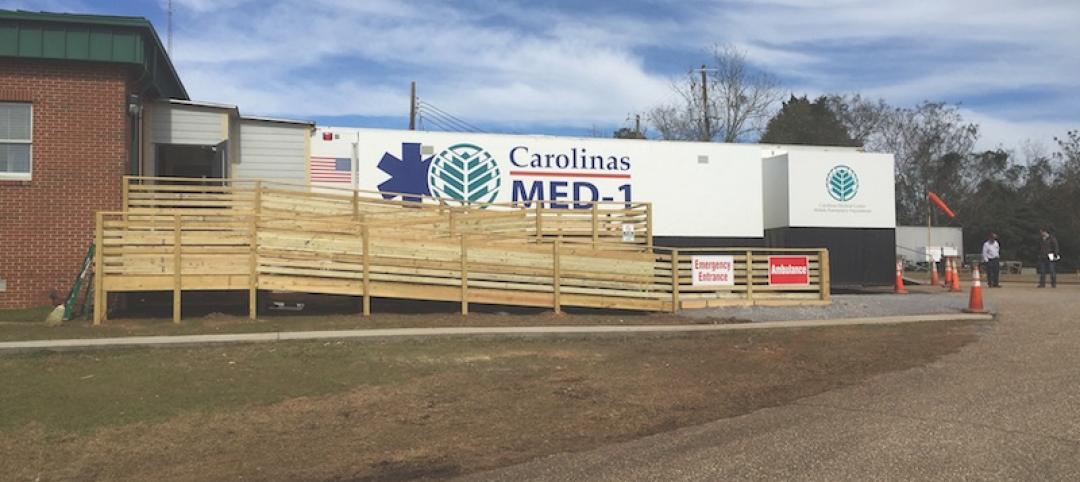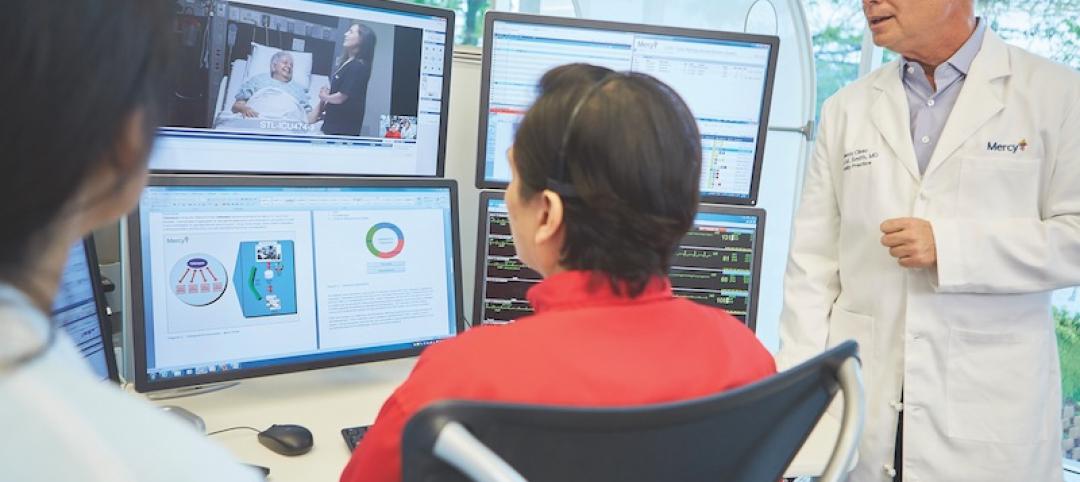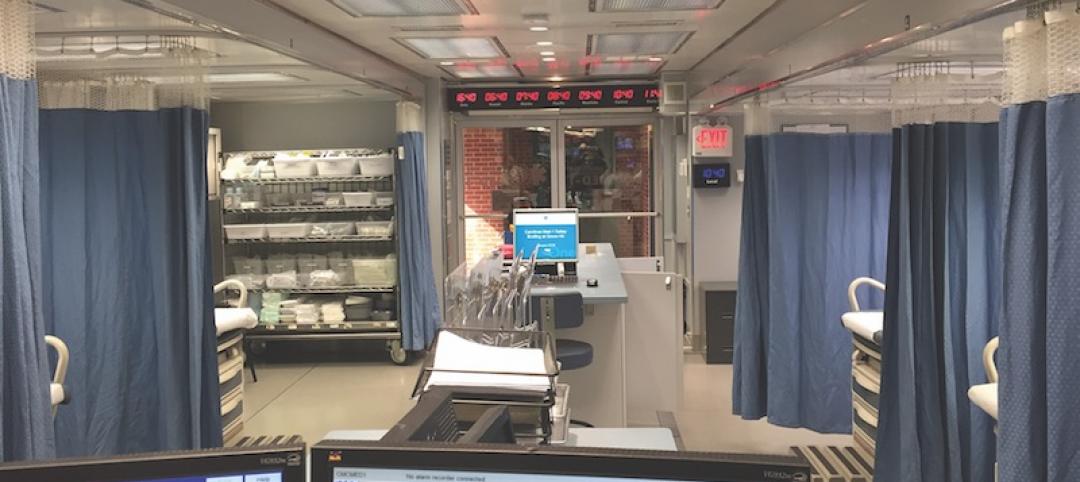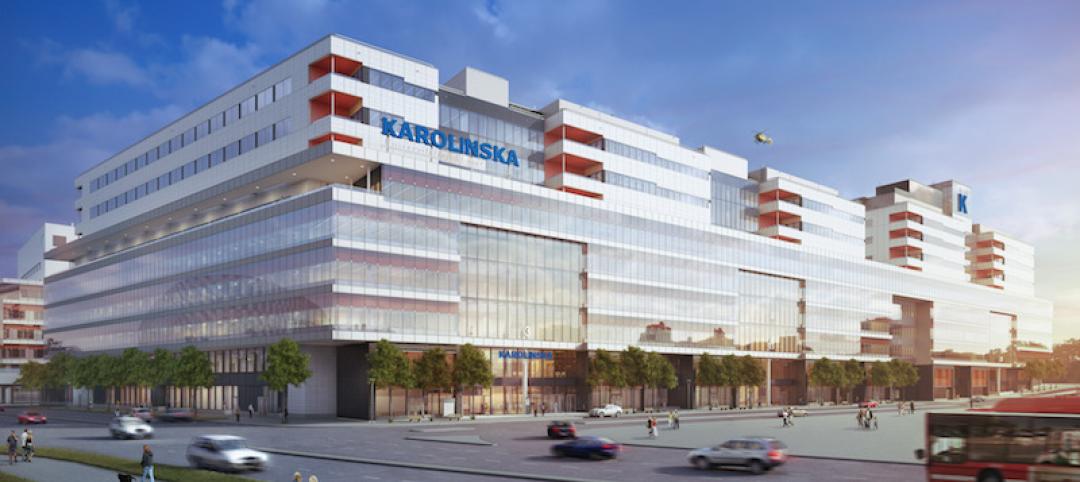The American Institute of Architects (AIA) Academy of Architecture for Health (AAH) has selected the recipients of the AIA National Healthcare Design Awards program. The program showcases the best healthcare building design and healthcare design-oriented research. Projects exhibit conceptual strengths that solve aesthetic, civic, urban, and social concerns as well as the requisite functional and sustainability concerns of a hospital.
Recipients were selected in four categories:
Category A: Built, Less than $25 million in construction cost
Category B: Built, More than $25 million in construction cost
Category C: Unbuilt, Must be commissioned for compensation by a client with the authority and intention to build (No projects were selected in this category this year)
Category D: Innovations in Planning and Design Research, Built and Unbuilt
(All images courtesy AIA. Click photos to enlarge. Click project names for more information and images.)
Category A
Kaiser Permanente, Kraemer Radiation Oncology Center | Anaheim, CA | Yazdani Studio of Cannon Design
The design for this LEED Gold radiation therapy building provides a highly supportive environment for the treatment and care of cancer patients. The challenge was to create an environment that reduces stress for patients and families and provides the best current technological infrastructure. The approach focused on the needs of cancer patients and their treatment schedules, which typically occur five days a week for five to eight consecutive weeks. The design provides a calming experience through the use of natural light, organic forms, outdoor views to nature, soothing interior colors, and an internal “Zen Garden” with a vibrant living wall garden.
Planned Parenthood Queens: Diane L. Max Health Center | Queens, New York | Stephen Yablon Architecture
For its first center in Queens, Planned Parenthood sought a facility that provided state-of-the-art care for one of the most diverse communities in the world. Since opening, the facility has ranked in the 99th percentile for patient satisfaction when compared to similar hospitals. The building’s contemporary design contrasts with its brownstone neighbors, establishing itself as a welcoming community institution. The sleek and light-filled interiors are uplifting and easy to navigate, reducing patient stress. A bold color system aids in orientation and livens up the center.
Category B
Memorial Sloan Kettering (MSK) Regional Ambulatory Cancer Center | West Harrison, New York | EwingCole
The efficient layout reduces the cost of healthcare delivery and supports both short- and long-term expansion possibilities at the West Harrison site for Memorial Sloan Kettering’s Regional Cancer Center. The challenge for the design team was converting what was a 1950s office building, with dated brick and metal panels and large floor plates, into a modern cancer center. The building not only accomplished LEED Gold status but also implemented healthy-building initiatives, such as specifying PVC-free products for both construction and design.
The Christ Hospital Joint and Spine Center | Cincinnati | Skidmore, Owings & Merrill LLP
The Christ Hospital sought to unify its main campus through a model for integrated, patient-centered joint and spine care. Skidmore, Owings & Merrill worked with patients, medical professionals, and hospital staff to design the new Joint and Spine Center. Inside the hospital, spaces for patients are filled with daylight, outside views are maximized to support well-being, and quiet spaces for family and staff are programmed with comfortable furnishings for conversation and rest. The building is LEED certified. Since opening, the facility has ranked in the 99th percentile for patient satisfaction when compared to similar hospitals.
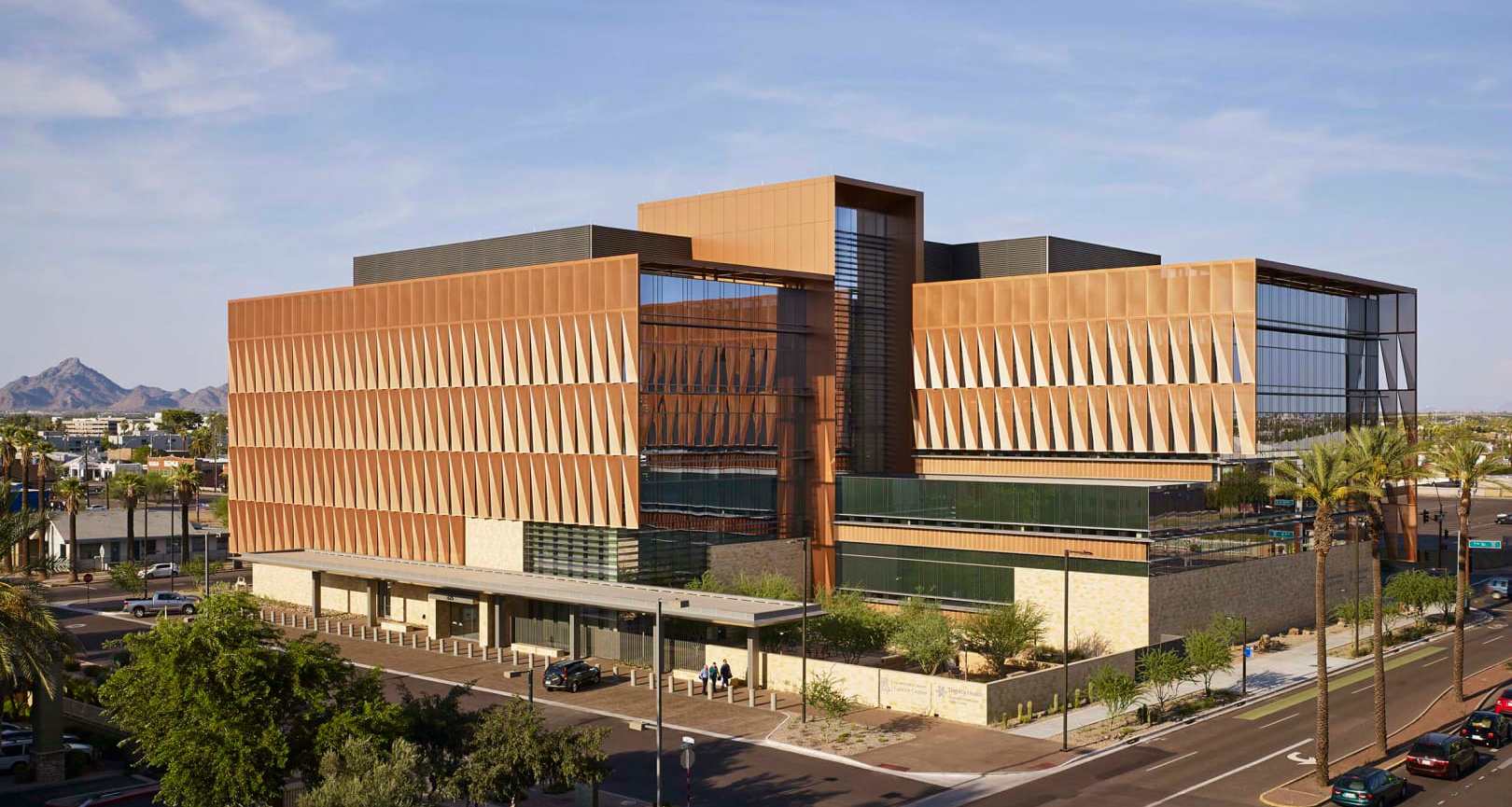 Photo: Nick Merrick / Hedrich Blessing Photographers
Photo: Nick Merrick / Hedrich Blessing Photographers
The University of Arizona Cancer Center (UACC) at Dignity Health St. Joseph’s Hospital and Medical Center | Phoenix | ZGF Architects LLP
The 220,000-sf UACC is intended to deliver care within an evidence-based, multidisciplinary model, using the most modern technologies. The building program includes spaces for radiation oncology, diagnostic imaging, endoscopy and interventional radiology, and exam and procedure rooms, along with a support and wellness center, a clinical pharmacy, and a healing garden. The building was designed to integrate the natural beauty of the landscape and address the needs of the UACC staff and patients for years to come. An exterior shade system and chilled beams greatly contributed to the sustainability of the facility.
University Medical Center New Orleans | New Orleans | NBBJ
University Medical Center provides New Orleans with critical safety-net care in a 1.5 million-sf facility built to withstand natural disasters. Features include inpatient services, cancer care, behavioral health and a Level 1 trauma center. The design promotes holistic healing, from landscaped courtyards to all-private inpatient rooms with natural light and in-suite bathrooms. Wide double-bays and sliding breakout doors enable swift action in treatment zones. Floor-to-ceiling windows in public spaces create transparency and uplifting views, while custom artwork and graphics throughout the hospital to honor New Orleans’ rich heritage. The project is Louisiana’s largest teaching hospital and training facility for physicians, nurses and allied health professionals.
Category D
Seattle Children's Hospital, South Clinic | Seattle | ZGF Architects LLP
Seattle Children's South Clinic advances the hub-and-spoke model of healthcare that brings outpatient services closer to patients in their communities. It offers more responsive care while reducing demand for acute care services. The clinic was designed with a focus on patient flow so providers can serve patients efficiently.
Located in the Seattle suburb of Federal Way and within a shopping center, the design adapts a former Circuit City store into a 37,000-sf outpatient clinic that houses urgent care, and occupational and physical therapy.
Related Stories
Healthcare Facilities | Aug 30, 2016
The Program of All-Inclusive Care for the Elderly is making large strides
A typical PACE center is comprised of a fully functioning and equipped primary care clinic, adult day center and rehabilitation therapy gym.
Great Solutions | Aug 23, 2016
GBBN designers take on wellness research
In a new research paper, three healthcare specialists present factors that contribute to a psychological state that is receptive to healing.
Great Solutions | Aug 23, 2016
Reusable infection control barriers ease hospital renovation
Clark Construction Group pilots the Edge Guard system on the Fair Oaks (Va.) Hospital reconstruction project.
Great Solutions | Aug 23, 2016
Mobile emergency room arrives just in time for Alabama hospital
The MED-1 Mobile Hospital Unit serves as a lower-cost solution during construction of new ED.
Great Solutions | Aug 23, 2016
Virtual care facility serves remote patients, may reduce readmissions
Mercy’s new high-tech medical center equips its medical professionals to deliver care at the bedside of patients anywhere.
Great Solutions | Aug 23, 2016
11 great solutions for the commercial construction market
A roll-up emergency department, next-gen telemedicine center, and biophilic cooling pods are among the AEC industry’s clever ideas and novel innovations for 2016.
Healthcare Facilities | Aug 16, 2016
The future of healthcare design education: 5 takeaways from ACHA 2016
Creating a network of experts to talk next generation healthcare design education
Healthcare Facilities | Aug 15, 2016
Future proofing hospitals
By improving the physical layout of hospitals and medical facilities, we can enhance and increase safety mechanisms, improve care, and help reduce the exposure to medical errors, writes Skanska USA's Andrew Quirk.
Healthcare Facilities | Aug 10, 2016
11 principles for pediatric healthcare design
Engagement at all levels, designing with families in mind, and integrating flexible spaces are all important design considerations to keep in mind for pediatric healthcare planning, writes HDR's Brian Zabloudil.
Healthcare Facilities | Aug 9, 2016
Key strategies to reduce healthcare facility costs and maintain operations
The right approach during the planning, design, and construction of a new facility can yield a positive return on investment and lower the overall cost basis for ongoing operations, writes Steve Higgs, Senior Managing Director with CBRE Healthcare.


